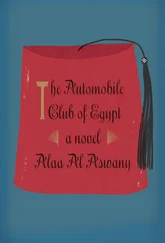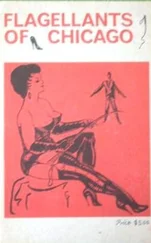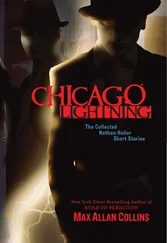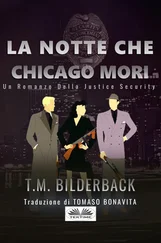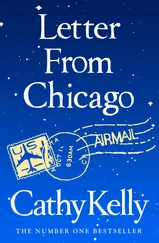To my mother and my father,
hoping I haven’t disappointed them

Many do not know that chicago is not an English word but rather Algonquian, one of several languages that Native Americans spoke. In that language chicago meant “strong smell.” The reason for that designation was that the place occupied by the city today was originally vast fields where the Native Americans grew onions, the strong smell of which gave the place its name.
Native Americans lived for scores of years in Chicago, on the shores of Lake Michigan, growing onions and herding cattle. They lived peacefully until the year 1673, when a traveler and mapmaker by the name of Louis Joliet, accompanied by a French Jesuit monk named Jacques Marquette, “discovered” Chicago. Soon thousands of colonists descended upon it just like ants on a pot of honey. During the hundred ensuing years the white colonists waged horrific genocidal wars, in the course of which they killed anywhere from five to twelve million Native Americans throughout North America. Anyone reading American history must pause at this paradox: the white colonists who killed millions of Indians and stole their land and other possessions were, at the same time, extremely religious Christians. But this paradox is resolved once we learn about the prevalent views in that era. Many white colonists believed that “American Indians,” even though they were, somehow, God’s creatures, were not created in the spirit of Christ but rather in another imperfect and evil spirit. Others confidently asserted that they were like animals, creatures without a soul or conscience, hence they did not have the same value as white men. Thanks to those convenient theories, the colonists were able to kill as many Native Americans as they liked without any shadow of regret or feelings of guilt. No matter how horrific were the massacres they conducted all day long, it did not detract from the purity of their bedtime prayers every evening. The genocidal wars ended with a crushing victory for the founding fathers. Chicago was incorporated as an American city in the year 1837 and in fewer than ten years had swelled to sixteen times its original size. Adding to its importance was its location on Lake Michigan and its vast pastures. Then the railroads made Chicago the indisputable queen of the American West.
The history of cities, like the lives of humans, however, suffers vicissitudes of happiness and pain. Chicago’s black day came on Sunday, October 8, 1871. In the west of the city lived Mrs. Catherine O’Leary with her husband, children, one horse, and five cows. That evening Mrs. O’Leary’s animals were grazing quietly in the backyard of the house. At around nine o’clock, one of the cows was suddenly bored, so it decided to leave the backyard and go to the back barn, where its curiosity was aroused by a kerosene lamp. It circled around the lamp for a while and stretched its neck to sniff at it, then suddenly it responded to a mysterious desire to give it a strong kick, whereupon the lamp overturned and the kerosene spilled and the floor caught on fire. There was a pile of hay nearby that was ignited, and soon the house burned down, then the neighboring houses also burned down. The wind was strong (as is usual in Chicago), so the fire spread everywhere. Within an hour the whole city was engulfed in flames.
The catastrophe was made even worse by the fact that the firemen were exhausted from staying up the whole previous night putting out another fire that had damaged much of their equipment, which was primitive to begin with. The flames soared in the sky and began to devour the houses of Chicago, which were mostly made of wood. People’s loud, anguished cries mixed with the sound of the raging fire as it gutted the city, producing a frightful din, as if it were snarling a curse. The scene was frightening and mythical, like the description of hell in holy scriptures. The fire raged mercilessly for almost two full days until it was finally extinguished at dawn on Tuesday. The damages were tallied: more than three hundred people killed, a hundred thousand (about one-third of the total population) left homeless. As for monetary damages, they exceeded two hundred million dollars in nineteenth-century monetary values. The catastrophe did not stop there: fire and destruction brought forth total anarchy. Roving gangs of miscreants and criminals, thieves, murderers, addicts, and rapists spread like maggots coming from all over to wreak havoc in the unfortunate city. They began to loot contents of burnt-out houses, stores, banks, and liquor stores. They guzzled liquor on the street and killed whoever crossed their paths. They abducted women to gang-rape them publicly. In the midst of the catastrophe the churches in Chicago organized special masses and prayers to lift the pain and suffering, and all the clergy spoke in a sincere penitent tone about the catastrophe as just punishment from the Lord for the spread of heresy and adultery among the citizens of Chicago. The destruction was so rampant that whoever saw Chicago at that time was certain it was irrevocably lost.
But what happened was contrary to expectations. The enormity of the catastrophe was such that it motivated Chicagoans and gave them courage. A merchant by the name of John Wright, who throughout his life understood only the language of numbers and deals, and who was never known for literary inclinations to eloquence, found himself standing in the midst of dozens of shocked and bereaved citizens milling about after having lost all they had to the fire. Suddenly a mysterious, poetic energy burst forth from him and he improvised a speech that was to become memorable in the history of the city. John Wright held out his arms in front of him and his features hardened in what looked like pain (he was a little drunk), then shouted in a loud, cracked voice, “Courage, men! Chicago did not burn; it entered the fire to get rid of its bad elements and will come out stronger and more beautiful than it has been.”
Thus the latent instinct for survival was sparked and the natural solidarity that unites people at dangerous moments erupted. The survivors started working tirelessly — armed volunteers ready to die for their city joined forces and began to chase and fight the gangs, killing them or forcing them to flee. Dozens of nongovernmental shelters were opened and donations poured in to provide food, clothing, and medical care for thousands of homeless families. Tens of thousands of dollars were pumped into Chicago from all over America for reconstruction and investment in its commercial projects. Reconstruction, however, caused new problems; the city council passed an ordinance prohibiting the building of wooden buildings because they had caused the fire to spread. This ordinance resulted in higher rents, which meant that most inhabitants of the city remained on the street because they couldn’t afford the rent in new buildings, especially since labor had become so cheap as thousands of non-Chicagoans poured into the labor market. The economic crisis worsened to the point that hordes of poor and hungry people staged violent demonstrations, raising signs with the clear-cut three-word slogan: bread or death. But the American capitalist system was able, as usual, to present a temporary solution to the crisis — one never mentioned in the history books. Investments created several new millionaires while the majority of the population remained in abject poverty. Despite that, John Wright’s prophecy came true. In a few years Chicago was more beautiful and stronger than it had been and was crowned, for many years to come, as the most important city in the West, as well as being the third largest American city and a major center of commerce, industry, and culture in America and the world.
Читать дальше
Конец ознакомительного отрывка
Купить книгу



